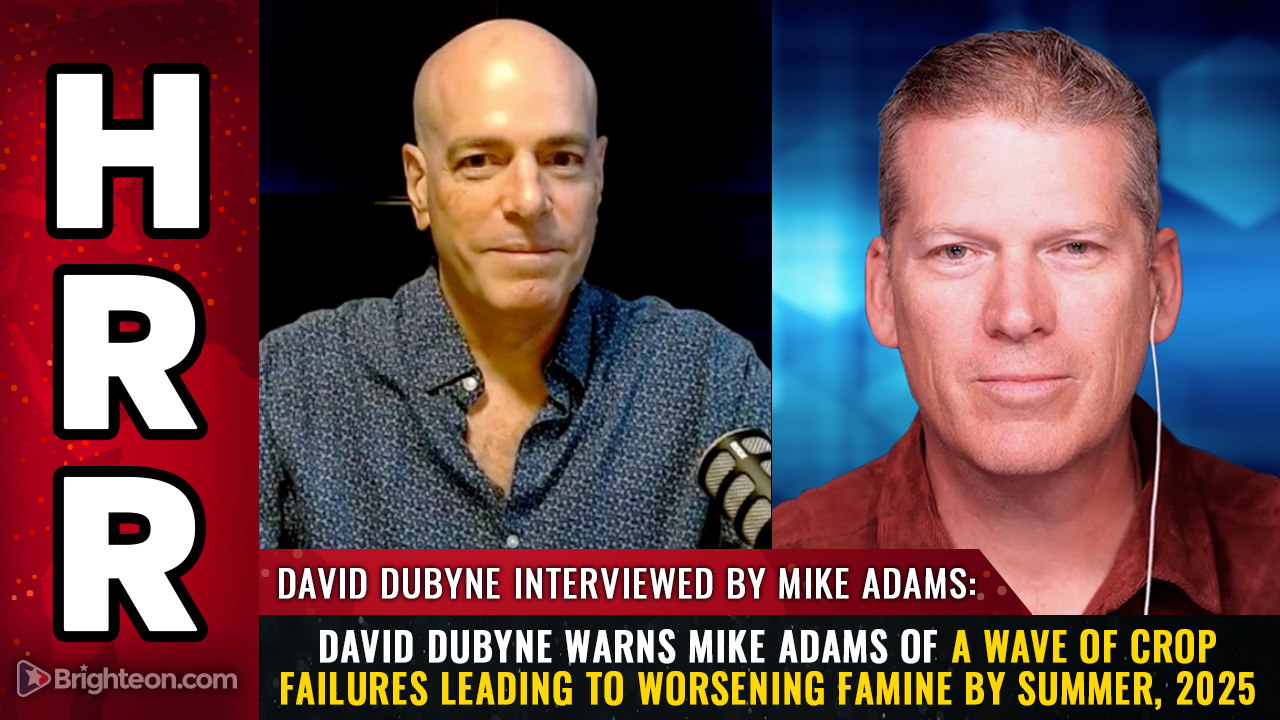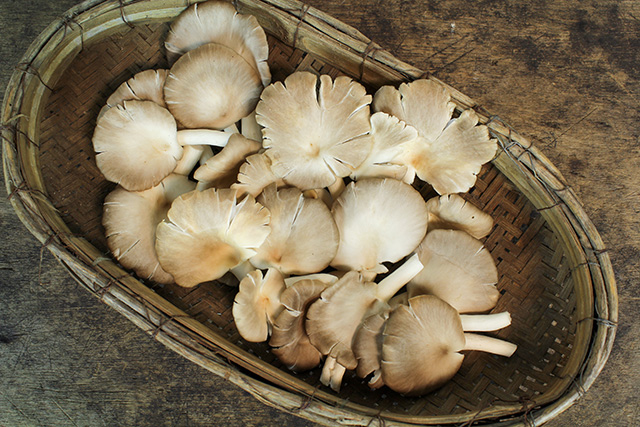 Parler
Parler Gab
Gab
- Climate researcher David DuByne predicts severe global food shortages by summer 2025 due to extreme weather, supply chain disruptions, and escalating trade wars, with rice, wheat, and corn supplies at risk.
- DuByne cites geopolitical tensions—like U.S. penalties on Chinese vessels—as crippling global trade, leading to factory shutdowns and shortages of farming essentials (seeds, fertilizers, spare parts).
- AI forecasts reveal alarming declines: rice (3–5% shortfall), wheat/corn (4–5.5%), and oats (5–7%). Price spikes of 25–40% could trigger riots in impoverished nations.
- Earth’s weakening magnetic field disrupts weather patterns, worsening crop failures. DuByne accuses governments of masking climate chaos with tariffs and delayed USDA reports.
- DuByne advises growing food (Victory Gardens), stockpiling tools, and bartering skills. Adams warns of hyperinflation and supply chain collapse, urging self-reliance before 2025’s crisis hits.
The Perfect Storm: Climate, Collapse, and Control
DuByne, founder of Adapt 2030, emphasized that geopolitical tensions—like the Biden administration’s $1.5 million docking penalty on Chinese-made vessels—are strangling global trade. "Factories in Asia are shutting down overnight," he said. "Farmers won’t get spare parts, fertilizers, or seeds. This isn’t incompetence—it’s systemic sabotage." His AI analysis of regional crop reports paints a grim picture:- Rice: 3–5% global shortfall (25M+ tons lost), with Myanmar’s production crippled by earthquakes.
- Wheat/Corn: 4–5.5% losses, compounded by export bans in India and Vietnam.
- Oats: A "canary in the coal mine," with 5–7% declines signaling broader agricultural collapse.
The Hidden Crisis: Magnetic Shifts and AI Blackouts
Beyond trade wars, DuByne flagged Earth’s weakening magnetic field (5% loss per decade) as a driver of erratic jet streams and crop failures. "Governments are hiding behind tariffs to mask climate chaos," he alleged, noting USDA delays in crop forecasts. Adams highlighted the irony: "Trump’s tariffs are embargoing America—just like the U.S. did to Japan before Pearl Harbor. This is economic warfare on our own supply chain."Survival Strategies: From Victory Gardens to Barter Economies
DuByne urged immediate action:- Grow Food: Study WWII Victory Garden plans for high-yield, small-space farming.
- Stock Tools: "Estate sales for pre-China steel tools. Learn to repair everything."
- Barter: "Trade skills for food. Protein sources like rabbits or quail will be critical."
The Countdown to Famine
With China auctioning off shuttered factories and U.S. cattle herds at 1950s lows, DuByne’s forecast is clear: "2025 isn’t a drill. It’s the year trade wars meet climate collapse—and the elites have built their excuses in advance." As DuByne’s data spreads, one question lingers: Will the world wake up before the breadlines form? Watch the full episode of the "Health Ranger Report" with Mike Adams, the Health Ranger, and David DuByne as they talk about the wave of crop failures leading to worsening famine by Summer 2025. This video is from the Health Ranger Report channel on Brighteon.com.More related stories:
Walmart’s 8% profit loss sparks MARKET PANIC, as concerns grow over tariffs and trade wars Food supply under strain: Major plant closures signal broader challenges for U.S. agriculture and the food supply Urban wildflowers absorb toxic metals, poisoning bees and threatening food supply Sources include: Brighteon.comU.S.-India energy pact undermines climate orthodoxy while solidifying counter-Chinese alliance
By Willow Tohi // Share
The antioxidant crisis: How mushrooms and soil health could be key to longevity
By Willow Tohi // Share
Get your money out of the banks: A call to action amid financial uncertainty
By Willow Tohi // Share
Buy Now, Pay Later: A growing trend for groceries amid economic uncertainty
By Willow Tohi // Share
U.S.-China trade clash sparks looming supply crisis and potential recession
By Willow Tohi // Share
Schiff on Kitco News: The dollar bubble just burst
By News Editors // Share
Governments continue to obscure COVID-19 vaccine data amid rising concerns over excess deaths
By patricklewis // Share
Tech giant Microsoft backs EXTINCTION with its support of carbon capture programs
By ramontomeydw // Share
Germany to resume arms exports to Israel despite repeated ceasefire violations
By isabelle // Share










